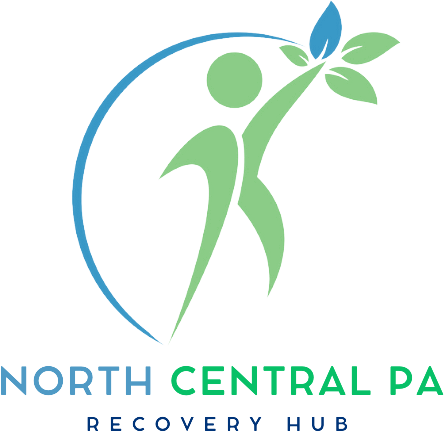Expanding Housing Options
Licensed recovery housing across Region 8 is limited and, in several counties, non-existent. The more expansive need for safe, stable, sustainable housing as a whole was also highlighted across the region. Understanding the value of the housing first model is critical to a successful recovery. While expanding licensed recovery housing is a longer-term goal, identifying and expanding existing housing solutions for individuals establishing lives in recovery presents as an immediate need.
-
- Identify licensed and unlicensed housing for Union, Montour, Columbia, & Sullivan Counties
- Bardford & Potter Counties provide transitional housing
- Lycoming County has unlicensed Oxford housing
- Tioga County has three (3) unlicensed housing options
- Clinton County has two (2) unlicensed housing options
- Tioga & Centre Counties have one (1) licensed recovery houses but with limited capacity
Goal Identified
During the coming year, The Recovery Hub for Region 8 will work to document existing licensed and unlicensed housing alternatives for individuals seeking and in recovery across the region. These resources will be shared in an online resource guide. In addition, the Hub Team will establish housing specialists who can assist individuals in need with locating and securing funding to support housing. Develop a plan for expanding licensed recovery housing in the region.
Reduce Stigma & Discrimination
Stigma was identified in each listening session and many of the focus groups across Region 8 as an obstacle to recovery. The main challenge with stigma is the resulting behaviors that discriminate against individuals. The stigma-discrimination cycle can become internalized by individuals and prevent them from seeking recovery or believing recovery is possible for them. The impact of this discrimination is experienced not only in law enforcement, but also in medical, employment, and other settings. There are state-wide initiatives and research-based efforts which can be employed in meeting this goal.
Goal Identified
During the coming year, the Hub Team will work to better understand and address stigma and discrimination, particularly within the law enforcement community in the region. Using a survey, the team will seek to better understand the sources and causes of stigma and discrimination in this community and deploy training to reduce this stigma and resulting discrimination.
Additional Areas for Attention
Along with strategic planning for your priority needs, there are several other areas that need to be addressed. Please provide a detailed narrative that addresses the following:
Recovery Friendly Workplaces
The HUB for Region 8 has identified this among its priorities as well. As noted, it is proposing a region-wide partnership with PA CareerLink while also engaging the Office of Vocational Rehabilitation and other agencies supporting job-readiness for individuals in early recovery. The intent is to assist them in resume preparation, interview skills, and the ability to respond to questions and challenges in obtaining employment. Such concerns include criminal background issues, gaps in employment, and previous history in employment, such as dismissal for cause. In addition, the HUB will connect with PRO-A and other organizations where work has been done in the arena to identify processes and approaches that have been effective. Also planned is pursuit and development of CRS Employment Specialist staff whose skills can be used in working directly with the individuals as well as serving as an educator for, and bridge to, such services.
Identifying potential payor groups to increase regional recovery support, workforce capacity, and expertise through training and education.
While oversight for HealthChoices in Lycoming and Clinton Counties is separate from Behavioral Health Alliance of Rural Pennsylvania (BHARP) which serves the rest of the region, Community Care Behavioral Health (CCBH) serves as the Behavioral Health Managed Care Organization for all of its counties. In addition to these payors, Opioid Settlement funds are being administered in each county. SCAs are involved directly in the disbursement of Opioid Settlement Funds in Bradford, Sullivan, Clinton, Lycoming, and Centre Counties. Additional existing or potential funders for recovery support services in the region include DDAP, United Way, Centre Foundation, First Community Foundation Partnership, Pennsylvania Commission on Crime and Delinquency (PCCD), and SAMHSA Grants.
Engaging Diverse Populations (BIPOC, LGBTQ+)
The HUB will provide access to cultural competence training for CRSs and other staff working in the field throughout the region. The HUB will be in a position to coordinate presence at PRIDE events throughout the region. Using social media, The HUB can develop an outreach campaign and provide tools to the SCAs and providers of recovery services. The HUB will engage existing BIPOC individuals, LGBTQIA+ people, and persons with disabilities in coordinating region-wide efforts, developing a campaign, and encouraging employment among these populations. These partnerships will be built on efforts to engage and mobilize the recovery community across the region described in Priority One above.

